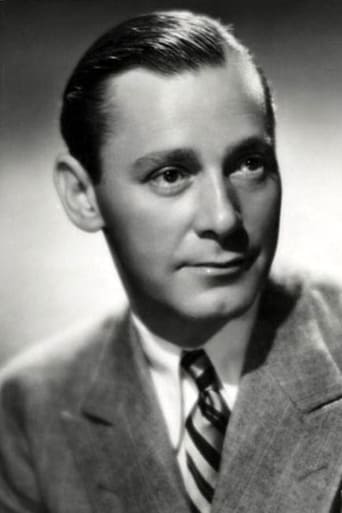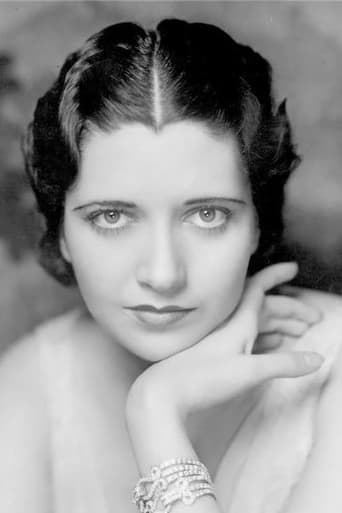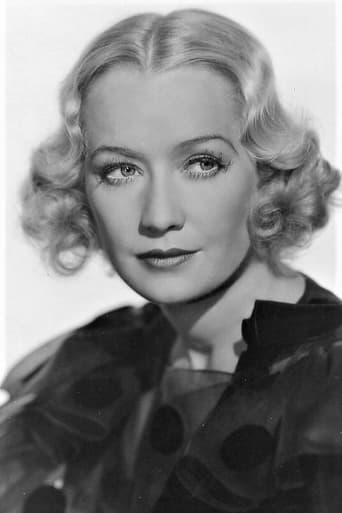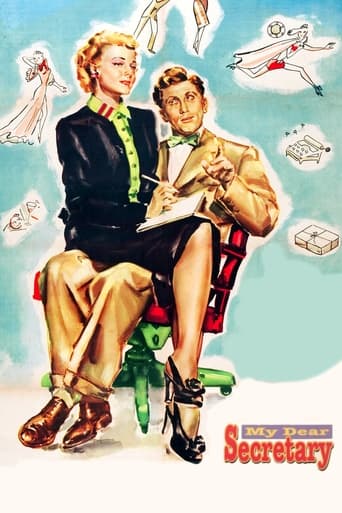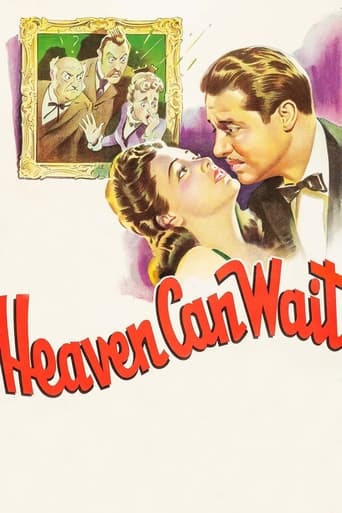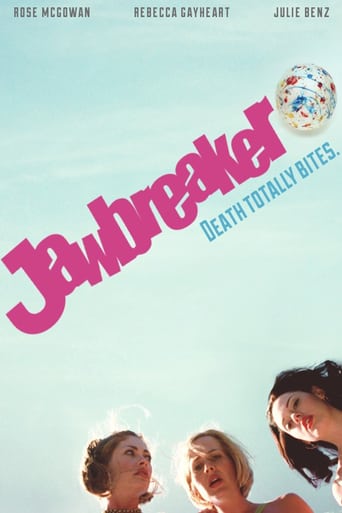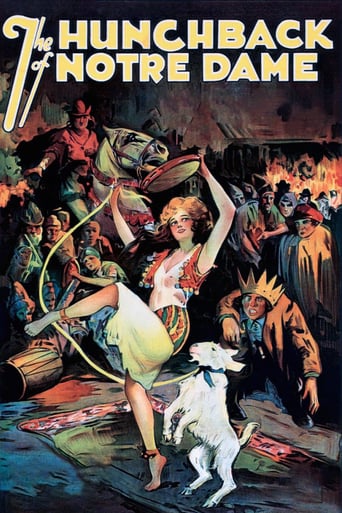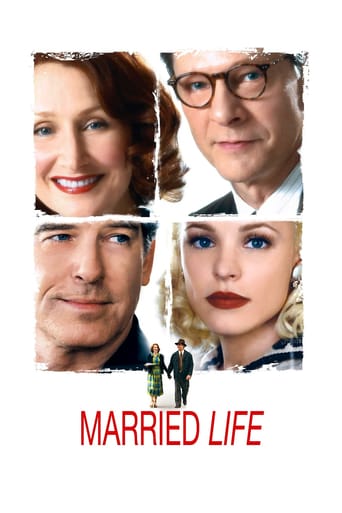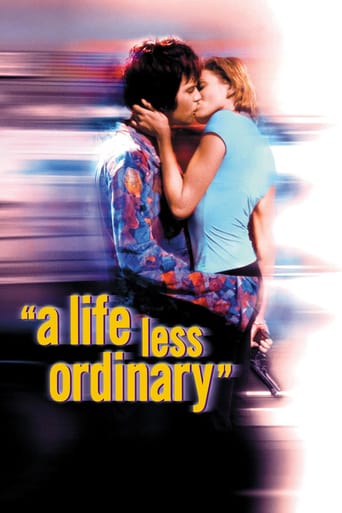
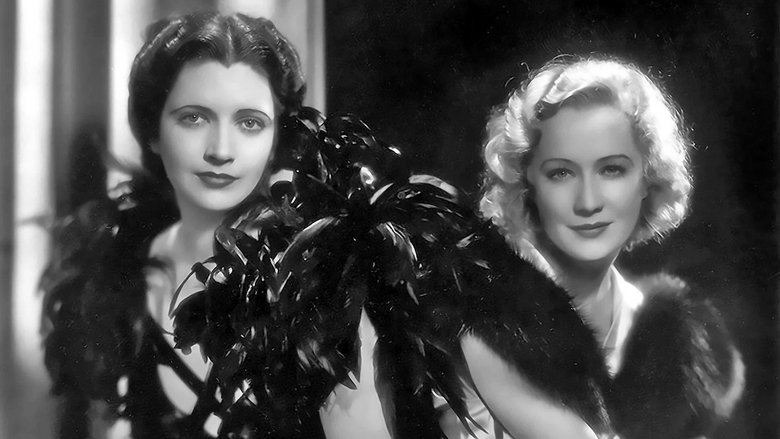
Trouble in Paradise (1932)
Thief Gaston Monescu and pickpocket Lily are partners in crime and love. Working for perfume company executive Mariette Colet, the two crooks decide to combine their criminal talents to rob their employer. Under the alias of Monsieur Laval, Gaston uses his position as Mariette's personal secretary to become closer to her. However, he takes things too far when he actually falls in love with Mariette, and has to choose between her and Lily.
Watch Trailer
Cast
Similar titles
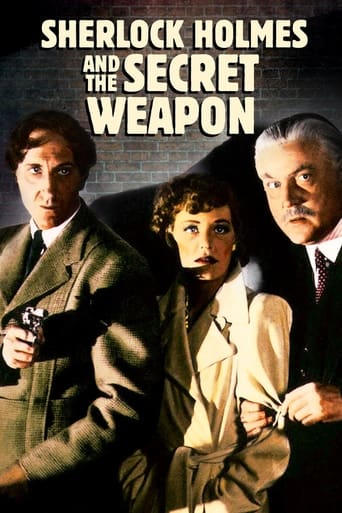
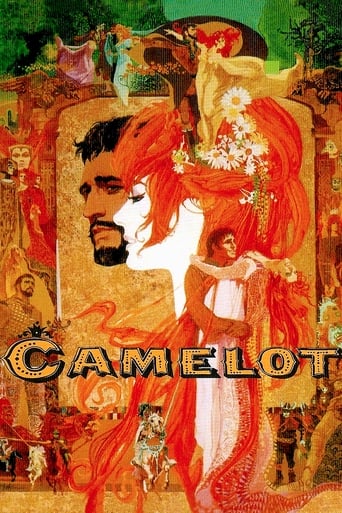
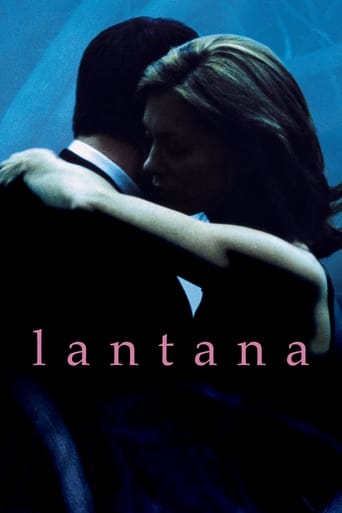
Reviews
I love this movie so much
everything you have heard about this movie is true.
It's fun, it's light, [but] it has a hard time when its tries to get heavy.
It's the kind of movie you'll want to see a second time with someone who hasn't seen it yet, to remember what it was like to watch it for the first time.
For cinema of this era I go to Pabst for ecstatic hovering out of self, the self that finds itself at the mercy of narratives; a true master that filmmakers like Lynch are still tapping into the potential of what he showed. Sternberg gives me feverish exaggeration of the same, a kind of grotesque sculpting in emotional air. Pabst seeks to transcend the constraints imposed by fictitious reality on self, Sternberg gives into the anguish they create. Lang turns these same constraints into monumental machinery that strike awe, but his way is much less interesting overall I think. And then there's this other maker who made the leap from Germany to Hollywood. Yet another way of dealing with fictitious reality here. With Lubitsch I come for the joyous dismantling of expectation; the constraints of fictions, our expectation that story plays out a certain way, are marvelously upended, opening us up to paradox and surprise. Here fictions are fanciful guises we put on to push each other, the constraints are opportunities for improvisation. There's this famed thing people call the Lubitsch 'touch', often in vague terms of exaltation, as any synonym for mastery. It's a specific thing he masters; spontaneous illogicality. You'll see a great demonstration in just the opening sequence here. It's one I'll keep with me when needing to discuss Lubitsch. A man lies unconscious in a dark empty apartment at night; something sinister has happened. Now cut to a man and woman meeting in another place. They're both royalty we find out, baron and countess. She had to sneak in there to meet him, improper mischief is implied, a desire to conceal. Soon we understand that neither is who we thought they were and the place where they meet is right next door to the unconscious man.It's a small masterstroke in pushing back horizon with just a few gestures. Like when the man gets up angry at having been found out, locks the door, draws the curtains; we imagine violence is coming. But they sit right back to eat, kindred souls delighted in each other's brilliant boldness of play-acting. The rest of the film flows by with much the same play-acting. We see a woman being set up to be conned, a rich Parisienne who scoffs at the men who desire her but falls for his suave charm. He insinuates himself into her home and begins controlling a story, fictitious reality. The suave charm of the film lies in seeing him, ever the cunning narrator, con his way out of difficult situations that might expose him while the noose tightens around him. Eventual unmaskings come with a certain largesse of heart that can only come by the hand of a filmmaker who sees fictitious reality as one large stage play and revels in the illusoriness of it all. It beats sulking into a corner, taking the caprices of human behavior to heart. So no hard feelings on her part at having been set up with fictitious romance. She shoos them out like mischievous kids. In turn he regrets that he couldn't split himself in two and leave one self behind to live a life with her. Herbert Marshall has more ruthless eyes than needed to convey longing here (or perhaps the point is that he cannot resist feigning to the end); but he's superb as wily narrator.But how about this notion as well. His girlfriend partner in crime has been in on the con all along, disguised as secretary in the same house. Had she not caved in to jealousy at the last moment, they would have pulled their plot clean off. It's this outpour of impulsive self that destroys the fiction and allows us to have the generous letting go of.
Before MPAA ratings, even before the Code, there were conventions and restrictions that Hollywood studios felt obliged to impose in the aftermath of scandals such as the Fatty Arbuckle rape case. Directors were forced to finesse matters of morality, and some succeeded better than others. Ernst Lubitsch succeeded best of all, and the German émigré's "Trouble in Paradise" may be the finest example.Consider the fact that the male lead, played by Herbert Marshall, seduces two women and at various times lives with them, without marrying either. Moreover, Marshall plays a professional thief ("walked into the Bank of Constantinople and walked out *with* the Bank of Constantinople") who hooks up with a lovely pickpocket (Miriam Hopkins); they conspire to swindle a wealthy and equally lovely perfume magnate (Kay Francis). In the hands of most directors, this would be the setup for a screwball farce. "Trouble in Paradise" is that, certainly, but so much more. It's a strikingly sophisticated comedy of manners in which love is mocked and sex is intimated in a dazzling variety of ways.Lubitsch and screenwriter Samson Raphaelson would later team up for the brilliant "The Shop Around the Corner" with Jimmy Stewart. It too is a comic masterpiece, but they could never surpass "Trouble in Paradise."
This was a film listed in the book of 1001 Movies You Must See Before You Die, I don't remember what I read or what the title meant, but I was looking forward to seeing what it had to offer, from director Ernst Lubitsch (Ninotchka, To Be or Not to Be, Heaven Can Wait). Basically in Venice, Gaston Monescu (Herbert Marshall) a master European thief who masquerades as a baron, Lily Vautier (Miriam Hopkins) is a beautiful thief and pickpocket also pretending to be higher in class, they meet and fall in love as they become a team. Leaving Venice for Paris they plan to steal a great fortune from the famous perfume manufacturer Madame Mariette Colet (Kay Francis), Monescu is her secretary and moved the cash into a safe, he begins having feelings for her as well. The plan has a hitch though as Monescu recognises one of Colet's suitors, François Filiba (Edward Everett Horton), eventually with the help of another suitor, The Major (Charles Ruggles), that Filiba mistook him for a doctor, and he then remembers the thief robbing him while pretending to be a doctor, so Monescu and Lily plan to get the cash from the safe to make a getaway. The Mayor is holding a dinner party, but Colet cannot decide whether to attend or have sex with Monsecu, and Lily has caught on that he has fallen for her rival, so after confronting him she steals all the safe money herself, and Colet meanwhile refuses to believe from Filiba his story of her love being a fraud and thief. She does suggestively probe Monescu like she knows something, and he does confess he is a fraud and that the safe has been emptied, but he claims he did it alone, and he also suggests the manager of her business Adolph J. Giron (C. Aubrey Smith) has stolen from the firm over time. Lily does come clean in front of Monescu and Colet that she stole the safe money, there is an argument, but eventually Colet allows the two thieves to leave together, in the car together he wants to make amends, and he reveals that he stole a valuable necklace that Lily had her eye on, she takes it from him and they embrace each other with a hug. Also starring Robert Greig as Jacques the Butler, Leonid Kinskey as The Communist and George Humbert as Waiter. The film is certainly scripted well, it has style, the acting is good and it has some interesting designs for costumes and sets, I admit it was hard to follow on occasions because of the upper class and sophistication lifestyle stuff, but most of it did make me laugh, and the love story stuff was fine as well, so it is a worthwhile romantic comedy. Very good!
This 1932 film, the first talking film by Lubitsch is a dear moment of pleasure. It is a comedy but the comedy is a lot more subtle than anyone may think.It is about a crook who meets a thief and they fall in love but then they plan schemes that are so big it is amazing how easy they seem to be. They plan an operation that would capture a fair amount of cash, and some jewels, from the heiress and boss of the first cosmetic (in those days it was mainly perfume) business in Paris and probably the world. It sounds like L'Oreal so much that the only difference between the young widow who is heading the business and Ms Bettencourt who has finally been court-ordered out of freely managing and using her money is their age.Yet that did not prevent the gay photographer who had been her late husband's lover to take her over and manipulate her like a piece a play dough. Never too old to be submitted to that game.The second difference is that the crooks are a couple and the danger for them is that the man may fall for the heiress, really fall I mean, and that solution is caressed for a short while but the dramatic suspense it creates is short lived in the end.The third interest is that the film clearly shows how the main board member of the business is using his position to enrich himself with discrete transfers from the business accounts to his own knowing that the heiress or boss or widow will never understand the procedure but the new secretary who is the crook and thief who infiltrated the business to get to the lady's safe knows about it at once and can reveal it. It takes a crook to know another.But then how funny it is to see the victim of all these rotten crooks refusing to call the police because of the scandal it would create. They did not know yet that a good and deep scandal is the best publicity for a business, as long as the scandal does show any support to the wrong side, and there Lubitsch is a very subtle man. The crooked board member who is stealing from the business on a regular basis has a secret first name he does not like. In 1932, guess twice what it could be? Adolf of course, and even if you write it the French way Adolphe it does not change and in the film it sounds just like Adolf, the other Adolf of 1932 who was starting to loom high over Europe.But a funny film after all far from such political considerations. Is it now so far from these political considerations? Dr Jacques COULARDEAU
